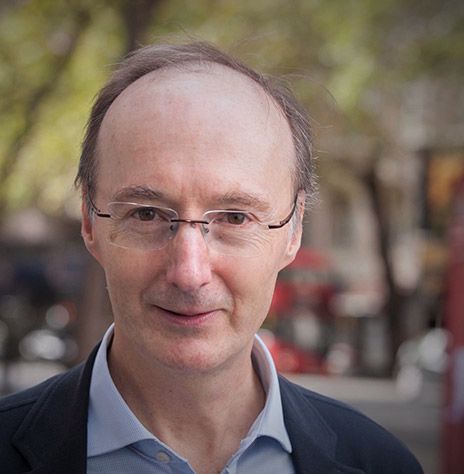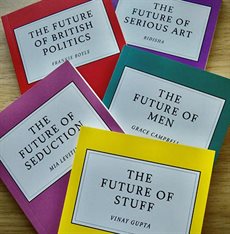Inspiring new ways of imagining the future - the Future Thinking Network is a broad, interdisciplinary group committed to changing how people conceptualize the future.
We aim to:
- research past and present futurologies
- explore the insights that can be drawn from previous speculations
- both theorize and approach future thinking in imaginative new ways, drawing on interdisciplinary perspectives
- apply research in ways that enrich contemporary thinking about the future
- generate research consortia addressing specific future challenges, and to assist these consortia with funding applications
The Network explores, creates and integrates visionary projections with systematic, data-driven approaches to enhance both the historical understanding of futurologies and their contemporary practices.

The point is not so much to prophesy as to generate new ideas about possibilities that could help us realise a future we might want to inhabit. To-Day and To-Morrow launched visions that helped create the modern world. The challenges we face now are, obviously, different from those of the 1920s and 30s. But our aspirations for FUTURES are the same. We want to change the conversation about what lies ahead so we can better imagine, understand and articulate the new worlds we might want to create.
Max Saunders, Afterword, FUTURES series
We draw our inspiration from Max Saunders’ research for Imagined Futures (OUP, 2019), about the brilliant 1920s series To-Day and To-Morrow, which comprised more than 100 short books in which scientists, authors, philosophers and other subject experts envisioned the futures of their topics, often with breathtaking results.
The first volume, geneticist J. B. S. Haldane’s Daedalus; or, Science and the Future (1923) produced a string of predictions, some of which were only realised recently or are still being realised. The most striking was what he called ‘ectogenesis’; the gestation of embryos in artificial wombs – something trialled successfully for sheep only in 2019, and likely to be developed to nurture premature human babies. Haldane also foresaw genetic modification, hormone replacement therapy, and wind farms.
J. D. Bernal’s The World, the Flesh and the Devil (1929) was no less visionary, imagining inter-planetary travel by colonies living in huge biospheres. Bernal also conducts a thought experiment with bio-engineering, producing the first detailed concept of a cyborg, connected directly to its fellows by radio. This leads him to a vision of something uncannily like the modern internet, and to the possibility of a networked intelligence.
We believe that, valuable though contemporary emphases on prediction, forecasting, and contingency planning can be, they occlude the To-day and To-Morrow style approach, which is, potentially more productive. This kind of future thinking is not about making predictions and attaching probabilities. It is about changing the discourse of futurology. It’s about what we can imagine and how. Thought experiments with new concepts, that won’t necessarily be realised and which can, perhaps, be best described as speculative non-fiction. Having them there to consider, build on or argue with can broaden the range of possibilities, and help enable us to build the best possible future(s) for ourselves.
 To this end in 2020 we launched a new series of essay-length books called FUTURES. We aim to commission up to 100 leading and emerging writers, thinkers and researchers to write essays imagining the futures of their fields, and to participate in associated events and podcasts.
To this end in 2020 we launched a new series of essay-length books called FUTURES. We aim to commission up to 100 leading and emerging writers, thinkers and researchers to write essays imagining the futures of their fields, and to participate in associated events and podcasts.
If your research involves thinking, writing about and/or planning for the future, please contact us. We are running a series of generative workshops to explore research synergies and to start developing collaborative projects.
Max Saunders, Interdisciplinary Professor of Modern Literature and Culture
Dr Lisa Gee, Research Fellow in Future Thinking
Related:
-
Writing, Science, and Modernity in the To-Day and To-Morrow Book Series, 1923-31
-
An OUP blog on imagined futures
-
Professor Max Saunders writes for The Conversation
-
Each short book in the FUTURES series presents a beautifully-written original future vision by an accomplished writer
Cluster members
-
Interdisciplinary Professor of Modern Literature and Culture
-
Research Fellow in Future Thinking